Search Images
Browse Content (p. 959)

Image
Mansa Musa Illustration
A modern artist's impression of the Mali Empire ruler Mansa Musa (r. 1312-1337 CE).
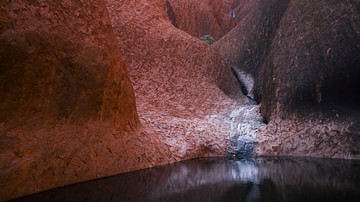
Image
Mutitjulu Waterhole
Ancient Uluru water spring overlooked by cliffs and waterfalls, central Australia. The area has long been a place of sacred tradition and history. In the Anangu tradition, the waterhole is the sacred location of the 'Kuniya and Liru story'...
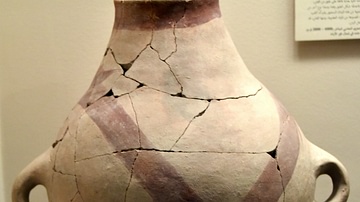
Image
Decorated Pottery Jar from Abu Hamid
This type is similar to the ones used for infant burials, but this one is painted with red strips using iron oxide (hematite), material already known during the Neolithic period for coloring plaster. The Jar was carefully made on a straw...
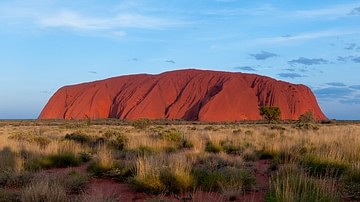
Image
Uluru
A wide photo of the ancient Uluru sandstone rock formation located in Central Australia. Uluru is home to many ancient tribes of Indigenous Australians that have inhabited the area for nearly 30,000 years and still do to this day. Uluru is...
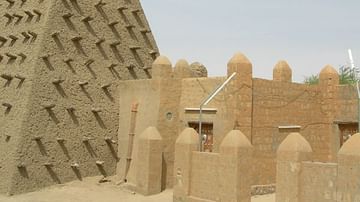
Image
Sankore Mosque, Timbuktu
The Sankore Mosque, Timbuktu, Mali. The mosque, made from pounded earth and wood, was built in the late 1100s CE.
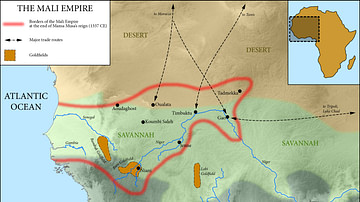
Image
Map of the Mali Empire, c. 1337 CE
A map of the Mali Empire (1240-1645 CE) at its peak c. 1337 CE after the reign of Mansa Musa (1312-1337 CE).

Image
Mansa Musa of the Mali Empire
A 1375 CE illustration of Mansa Kanku Musa (r. 1312-1337 CE) who ruled the Mali Empire in West Africa. (Detail from the Catalan Atlas Sheet 6, National Library of France, Paris)
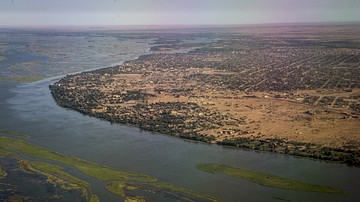
Image
Gao & the Niger River
An aerial view of Gao and the Niger River in Mali, West Africa. The river and trade along it were fundamental in the rise of African empires such as the Mali Empire (1240-1645 CE).
Photo Credit: UN Photo/Harandane Dicko

Image
Djinguereber Mosque, Timbuktu
The Djinguereber Mosque, Timbuktu, Mali. The mosque, made from pounded earth and wood, was built during the reign of Mansa Musa (1312-1337 CE), ruler of the Mali Empire.
Photo credit: UN Photo/Marco Dormino
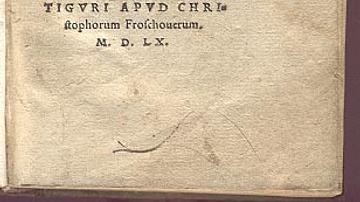
Image
Cicero's De Officiis
Cicero’s De Officiis and other philosophical works, printed in 1560 CE by Christopher Froschouer.